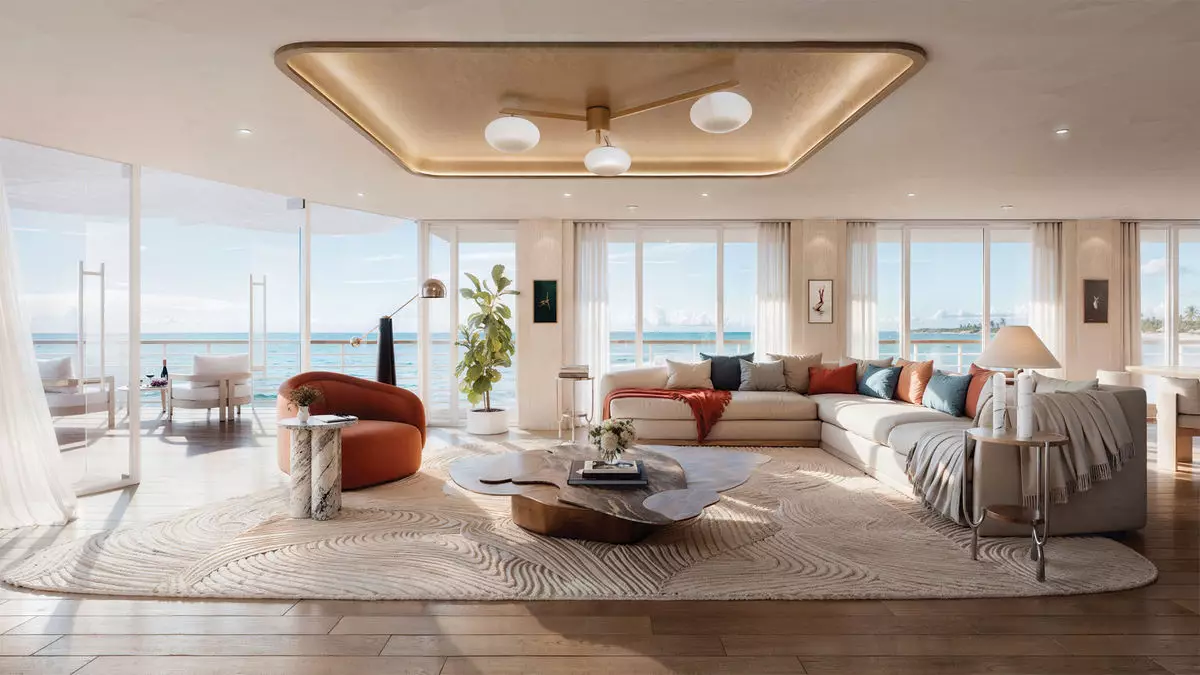The cruising industry has long been dominated by the allure of exotic destinations, opulent amenities, and unforgettable adventures at sea. However, a burgeoning niche within this market is reshaping the concept of travel: residential cruising. This unique lifestyle—where individuals purchase cabins to live year-round on ships—offers an intriguing alternative for affluent consumers looking for a blend of luxury and mobility. With the emergence of new players like Crescent Seas, founded by seasoned professionals from the industry, this trend is gaining momentum as it dreams of a new era in maritime living.
Trends Fueling Demand
Several key trends are converging to facilitate this shift towards residential cruising. The prolonged world cruises offered by traditional lines emphasize consumers’ growing preference for a lifestyle that allows for extended travel without the need to constantly relocate or check into new hotels. Additionally, advancements in technology, particularly high-speed internet access, have made remote work seamless and appealing. People are gravitating toward a lifestyle where their office can be the comfort of their cabin, overlooking an endless horizon rather than the confines of a conventional office.
Moreover, the pandemic has shifted attitudes on work and life balance, prompting many to reconsider where and how they want to spend their time. The idea of living at sea—a world immersed in beauty and luxury—can be tantalizing for those who are searching for both adventure and a sense of community.
Challenges and Skepticism
Despite the enticing prospects, skepticism remains prevalent, particularly among travel advisors. Many express concerns regarding the viability of investing in residential cruise lines due to previous instances of troubled launches and operational failures. Such hesitations are rooted in experiences like the abrupt cancellation of Life at Sea Cruises’ maiden voyage, a disappointment that exemplifies potential pitfalls in this nascent sector. In light of these challenges, caution prevails among travel advisors and clients alike, who are hesitant to dive into investments that seem unproven.
Industry insiders, however, argue that these issues were primarily logistical and related to individual companies rather than reflective of the market’s potential. They assert that factors such as an increasing number of affluent individuals seeking alternative lifestyles and expanding opportunities in the cruise sector warrant optimism. Prominent figures, like Carlos Edery of Luxury Cruise Connections, acknowledge the interest but urge a meticulous approach towards investments until consistent success has been demonstrated.
Innovative Business Models
New business models are being explored to ensure the successful incorporation of travel advisors within the sales strategies of residential cruise lines. Crescent Seas, for instance, is designed to incentivize advisors through commission structures, allowing them to engage with both long-term living arrangements and short-term rentals when residents are away. This innovative model broadens the scope of opportunities for agents, offering financial incentives that can make the venture more appealing, though it requires a shift in traditional sales approaches.
Veterans of the industry, like Mikael Petterson from Villa Vie, also recognize the necessity of integrating travel advisors more effectively into the sales process to establish a connection between luxury living at sea and conventional cruising experiences. By blending ownership with the option to rent or share cabins, these companies are crafting a narrative where living on a cruise ship becomes more than just an extravagant whim—it evolves into a lasting lifestyle choice.
The Future of Living at Sea
Looking ahead, the future of residential cruising seems ripe with potential but not without obstacles. The market is slowly expanding, with more brands entering the fray and fresh ideas emerging from experienced hands. Companies like Storylines are venturing into building their own vessels to directly cater to this growing demographic, indicating a belief in the long-term viability of the model.
However, the road to success in these ventures is laden with potential hazards, ranging from construction delays to operational challenges that can derail even the best-laid plans. The stories of ships grounded by inspection issues, as experienced by Villa Vie, highlight the importance of robust planning and execution in turning the vision of a year-round sea lifestyle into reality.
In a world where the traditional notions of work and life are continuously evolving, and with the allure of residential cruising offering a practical escape, it’s clear this niche sector has the potential to disrupt the travel industry and revolutionize how affluent people envision living and working in this new age of exploration.


Leave a Reply